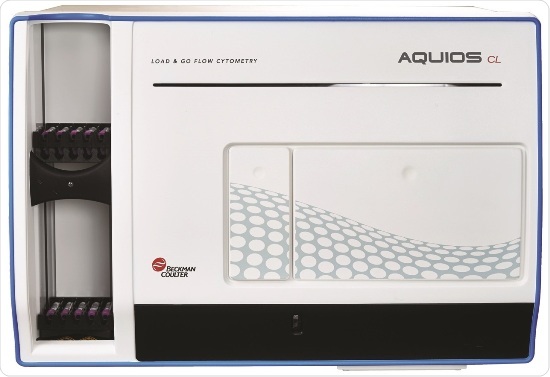Dec 7 2015
Beckman Coulter Life Sciences announce that their Aquios CL flow cytometer has been accepted by the World Health Organization (WHO) Prequalification of In Vitro Diagnostics Programme. It can now be used specifically for the immunologic assessment of patients having, or suspected of having, immune deficiency. The news comes as the company attends the 2015 International Conference on AIDS and STis in Africa (ICASA), taking place in Harare, Zimbabwe, 29 November to 4 December.

The World Health Organization (WHO) Prequalification of In Vitro Diagnostics (IVDs) Programme aims to promote and facilitate access to safe, appropriate and affordable in vitro diagnostics of good quality in an equitable manner. Focus is placed on in vitro diagnostics for priority diseases and their suitability for use in resource-limited settings.
The Prequalification IVD Programme has accepted the Aquios CL cytometer together with the Aquios Tetra‐1 Panel (CD45‐FITC/CD4‐RD1/CD8‐ ECD/CD3‐PC5) and Aquios Immuno‐Trol/Immuno‐Trol low controls. They are intended for use with in‐vitro diagnostic flow cytometric applications, involving four fluorescent detection channels using a blue (488 nm) laser, two light scatter detection channels and electronic volume (EV).
“Beckman Coulter is committed to developing HIV monitoring solutions that contribute directly to the treatment process,” explained Mario Koksch PhD, Vice President of the Cytometry Unit for Beckman Coulter Life Sciences.
The company’s CARES (Cellular Accessible Retroviral Evaluation Systems) Initiative is designed to provide innovative solutions for the monitoring of HIV and AIDS treatment. It started in 2004 after Professor Debbie Glencross, a South African laboratory pathologist, found a different and less expensive way to measure a patient’s CD4 count. The development of this compact, fully automated instrument to run that assay and carry out the accurate characterization of T cell CD4 subsets is the latest part of this initiative.
Fast and easy to use, the Aquios is the first authentic ‘LOAD & GO’ cytometry system and designed specifically to streamline workflow and reduce backlogs when handling applications, such as immunophenotyping. It is suitable for clinical labs of all sizes and requires minimal training to operate.
Explaining the benefits of the compact instrument for use in resource-limited labs, Dr Koksch added:
The small footprint, high-throughput Aquios helps improve workflow in all sizes of labs, even those with limited access to highly trained staff. In addition, its cap piercing technology provides additional safety for staff reducing their need to handle open blood tubes and risk exposure to biohazardous material.